- Provider Resource
- Home
- Browse Provider Resource
- Refer a patient
COVID-19 update: During this unprecedented global crisis, we’ve been working nonstop to develop protocols, policies and recommendations for the care of known or suspected COVID-19 patients, the safety of healthcare workers and health of our communities. We hope that by sharing our work, we can collaborate and inform your teams to be able to spend more time responding to and caring for your patients.
See UW Medicine’s screening and testing algorithms, policy statements and protocols.
The UW Medicine Neurosciences Institute (NSI) is a multidisciplinary team organized to diagnose and treat disorders of the nervous system. Our comprehensive team of specialists provides compassionate care for neurologic disorders, conducts world class research to discover novel treatments, and educates future generations of neuroscientists and clinicians.
Divisions
Featured Videos
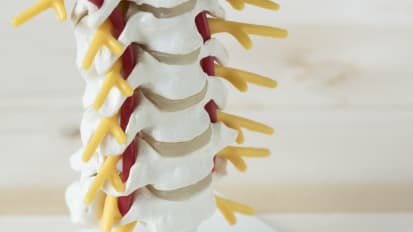 Video
Video
Vertebral Artery Anatomy and Surgery at the Foramen Magnum
Laligam Sekhar, MD, Professor and Vice Chairman of Neurological Surgery, recently presented at the World Skull Base Lateral Skull Base Fellowship Diploma 2019 conference in Bangalore, India.
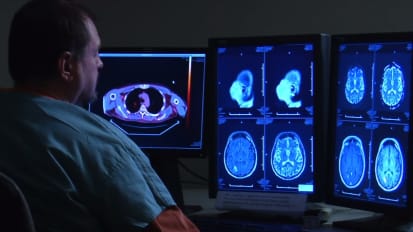 Video
Video
Studying How to Monitor and Treat TBI
Dr. Randall Chesnut, a neurosurgeon at Harborview Medical Center, is UW Medicine's lead investigator in a national study of two standard-care approaches to monitoring and treating TBI.
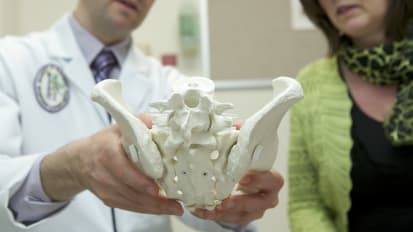 Video
Video
Surgical Treatment of Adult Spinal Deformity
Rajiv Saigal, MD, discusses how spine surgeons quantify spinopelvic parameters and sagittal balance, the clinical indications for spinal deformity surgery and the potential risks and benefits for undergoing spinal deformity surgery.
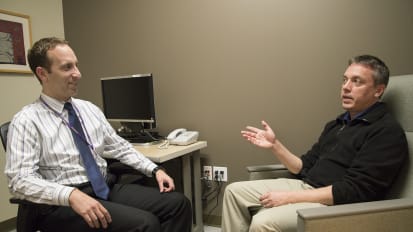 Video
Video
All You Need to Know About Multiple Sclerosis
Gloria von Geldern, MD, reviews the complexities in patients with MS including pathophysiology, diagnostic criteria and progression of the disease; and discusses the safety and efficacy of current and emerging therapies for treatment.
Protocols
 Document
Document
Initial Management of Traumatic Brain Injury
Algorithm for the initial management of traumatic brain injury.
 Document
Document
Geriatric Trauma Management Guidelines
This document serves to consolidate recommendations from existing guidelines to provide concise, evidence-based, expert panel rated lists of protocols and practices to improve trauma care among elderly patients.
 Document
Document
Head Injury in Anticoagulated Patients
To rapidly identify intracranial hemorrhage in anticoagulated patients and reduce the time from presentation to reversal of anticoagulation.
 Document
Document
Geriatric Trauma Care Guideline
Early aggressive trauma care has been shown to improve outcome for geriatric patients with survivable injuries.
To request access to our Acute Stroke Treatment Algorithms, please email uwmednsi@uw.edu.
Information & Resources
 Document
Document
UW Medicine Neurosciences Institute
An overview of the UW Medicine Neurosciences Institute, center locations and referral information
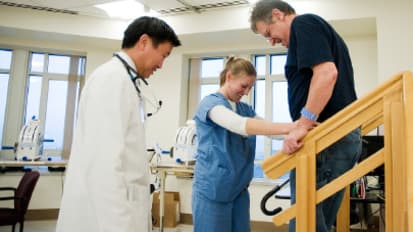 Document
Document
When a patient with stroke symptoms arrives at the UW Medicine Stroke Center at Harborview Medical Center, our specialized stroke team does a rapid, comprehensive evaluation and implements an individualized emergency stroke treatment plan.
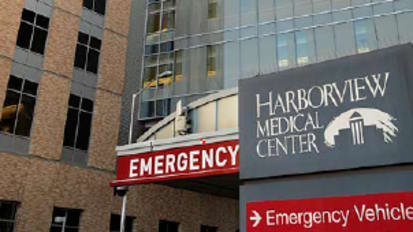 Document
Document
UW Medicine Neurosciences Institute Stroke Center: Did You Know?
HMC CSC has vascular neurosurgery specialists and neurointerventionalists available to perform emergency surgical and endovascular interventions 24 hours a day, 7 days a week.
 Document
Document
UW Medicine | Regional Epilepsy Center Overview
The UW Medicine Regional Epilepsy Center offers a multidisciplinary program for the comprehensive clinical care of epilepsy.
 Document
Document
UW Medicine’s Neurosciences Institute comprehensive pituitary program clinic at Harborview Medical Center is a tertiary-care referral center.
 Document
Document
The UW Medicine Multiple Sclerosis Center is one of the largest, most comprehensive such programs in the United States and a model for other MS facilities.
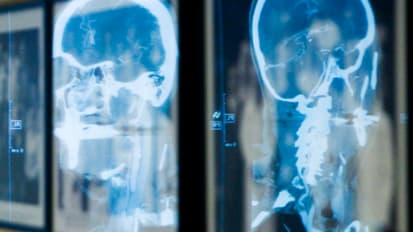 Document
Document
Memory and Brain Wellness Center
At the UW Medicine Memory and Brain Wellness Center, our multidisciplinary team specializes in the care of patients with neurodegenerative disorders.
 Document
Document
UW Medicine / Functional and Restorative Neurosurgery Program
The Functional and Restorative Neurosurgery Program at the UW Medicine Neurosciences Institute employs innovative technologies to treat patients with movement disorders.
 Document
Document
Management Algorithms for Adult Severe Traumatic Brain Injury (sTBI)
Randall Chesnut, MD, PhD, Professor of Neurological Surgery, recently published an article on the management algorithms for traumatic brain injuries (sTBI) using a consensus-based approach.
 News
News
UW Multiple Sclerosis Center Participates in Pivotal Clinical Trials
Annette Wundes, MD, Associate Professor of Neurology and Medical Director of the UW Multiple Sclerosis Clinic, recently co-authored a paper discussing the outcomes of an FDA-approved drug for patients with relapsing MS.
 News
News
Safety of Slow-Pulsed Transcranial Electrical Stimulation in Acute Spike Suppression
We examined the effects of slow-pulsed transcranial electrical stimulation (TES) in suppressing epileptiform discharges in seven adults with refractory epilepsy.
 News
News
Palliative Care in the Neuro-Intensive Care Unit
Claire Creutzfeldt, MD and Associate Professor of Neurology, recently published an article investigating the current perceptions, practice patterns and preferences of neurointensivists as it relates to palliative care consultation in the Neuro-ICU.
 News
News
Neurologic Infections in Travelers
UW Medicine neurologists Malveeka Sharma, MD, MPH, and Joseph Zunt, MD, MPH, recently published an article outlining the neurological complications of specific parasitic, bacterial and viral infectious diseases that can affect the international traveler.
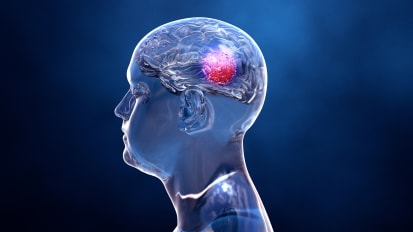 News
News
Biomarker Reveals if Benign-Appearing Meningiomas are Dangerous
Manuel Ferreira, MD, PhD and Chief of Neurological Surgery at UWMC, describes how biomarkers reveal if benign-appearing meningiomas are dangerous in a recent paper published by Clinical Cancer Research.
 News
News
The Sports Institute at UW Medicine Launches The Daily Mile Program
Samuel Browd, MD, PhD, implements the Daily Mile program at the UW Sports Institute to study the impact of moderate-to-vigorous physical activity on students in Washington.
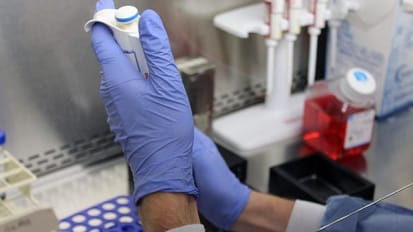 News
News
New Research Center to Explore Muscle Health and Disease
Investigators hope leading-edge scientific studies will translate into therapies for difficult-to-treat skeletal muscle disorders, as well as heart muscle damage.
 Document
Document
Current State of Immunotherapy for Treatment of Glioblastoma
Tresa McGranahan, MD, PhD and Assistant Professor of Neurology, recently published an article discussing the complexities of treating glioblastoma (GBM).
 Document
Document
Christine Mac Donald, PhD and Associate Professor in the Department of Neurological Surgery, published her findings on combat veterans with TBI.
 News
News
Hydrocephalus in Adults: Demographics & Clinical Characteristics of 500+ Patients
Michael Williams, MD and Professor of Neurology & Neurological Surgery, published his recent findings in the Journal of Neurosurgery: The clinical spectrum of hydrocephalus in adults: report of the first 517 patients of the Adult Hydrocephalus ...
 News
News
Researchers at the University of Washington based at Harborview Medical Center are joining a national study through the Strategies to Innovate Emergency Care Clinical Trials Network (SIREN), to learn if either of two strategies for monitoring ...
 News
News
Jeffrey Ojemann, MD, performs surgery on a patient with epilepsy whose live tissue sample allows researchers to peer into the workings of the human brain.
 News
News
Gene Study Suggests Drugs May Treat Some Aneurysms
Manuel Ferreira, MD, PhD and Chief of Neurological Surgery at UWMC, recaps his research on aneurysms, pinpointing medications that may be able to treat them.
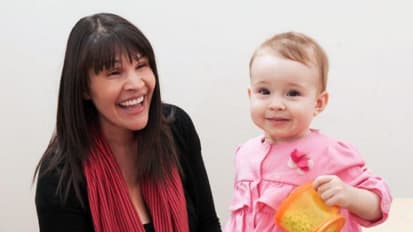 News
News
Study Aims to Confirm MRI's Ability to Detect Autism Early
The University of Washington in Seattle is among eight U.S. research sites undertaking a study to confirm whether brain imaging can detect signs of autism spectrum disorder in infants.
 News
News
Can You Help Me?: Living in the Turbulent World of Huntington Disease
Thomas Bird, MD, addresses Huntington disease and its permutations in a new book, "Can You Help Me?: Inside the Turbulent World of Huntington Disease."
 News
News
Targeting DUX4 Gene Expression in Patients with FSHD
Leo Wang, MD, PhD, recently published an article in Human Molecular Genetics discussing MRI characteristics of patients with FSHD.
 Document
Document
Neurotransmissions: Spring 2018
Spring 2018 issue of Neurotransmissions, the UW Department of Neurology’s newsletter for colleagues, alumni and friends.
 Document
Document
Spring 2018 issue of The Montlake Cut, a publication of the UW Medicine Department of Neurological Surgery.
 Document
Document
Summer 2018 issue of The Montlake Cut, a publication of the UW Medicine Department of Neurological Surgery.
 Document
Document
Winter 2018 issue of The Montlake Cut, a publication of the UW Medicine Department of Neurological Surgery.
 Document
Document
Fall 2017 issue of The Montlake Cut, a publication of the UW Medicine Department of Neurological Surgery.
 Document
Document
Summer 2017 issue of The Montlake Cut, a publication of the UW Medicine Department of Neurological Surgery.
 Document
Document
Neurotransmissions: Spring 2017
Spring 2017 issue of Neurotransmissions, the UW Department of Neurology’s newsletter for colleagues, alumni and friends.
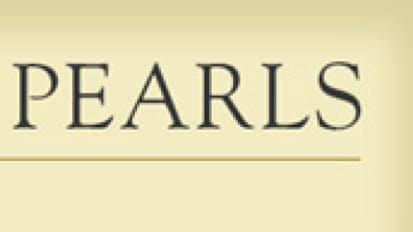 Document
Document
Neuroscience Pearls: Concussion
Neuroscience Pearls: A publication from the UW Medicine Neurosciences Institute. Here we bring you key points related to concussion recognition and management.
 Document
Document
Neuroscience Pearls: Botox® and chronic migraine
Neuroscience Pearls: A publication from the UW Medicine Neurosciences Institute. Here we bring you key points related to Botox® treatment for chronic migraine.
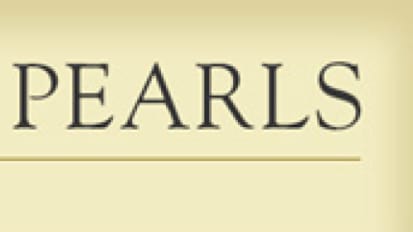 Document
Document
Neuroscience Pearls: ALS - Amyotrophic Lateral Sclerosis
Neuroscience Pearls: A publication from the UW Medicine Neurosciences Institute. Here we bring you key points related to Amyotrophic Lateral Sclerosis - ALS.
 Document
Document
Neuroscience Pearls: Autism Spectrum Disorders
Neuroscience Pearls: A publication from the UW Medicine Neurosciences Institute. Here we bring you key points related to autism spectrum disorders and management.
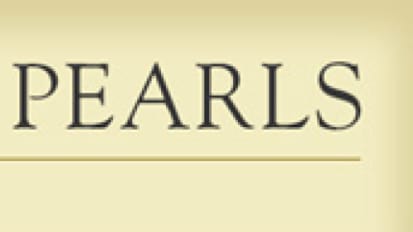 Document
Document
Neuroscience Pearls: Cerebrovascular Aneurysms
Neuroscience Pearls: a publication from the UW Medicine Neuroscience Institute. In this issue, we bring you the key points on recognition and evidence based shifts in the treatment of cerebral aneurysms.
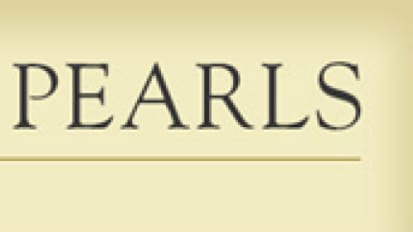 Document
Document
Neuroscience Pearls: Normal Pressure Hydrocephalus
Neuroscience Pearls: A publication from the UW Medicine Neurosciences Institute. In this issue we bring you key points on recognition, diagnosis, work-up and treatment of normal pressure hydrocephalus (NPH).
 Document
Document
Neuroscience Pearls: Parkinson’s Disease
Neuroscience Pearls: A publication from the UW Medicine Neurosciences Institute. Here we bring you key points related to Parkinson’s Disease and management.
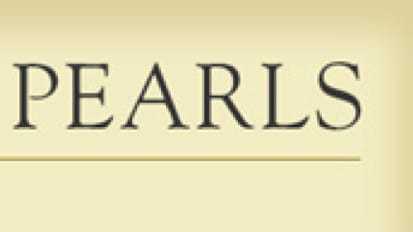 Document
Document
Neuroscience Pearls: Primary Brain Tumors
Neuroscience Pearls: A publication from the UW Medicine Neurosciences Institute. Here we bring you key points related to Primary Brain Tumors.
Research & Publications
Podcasts